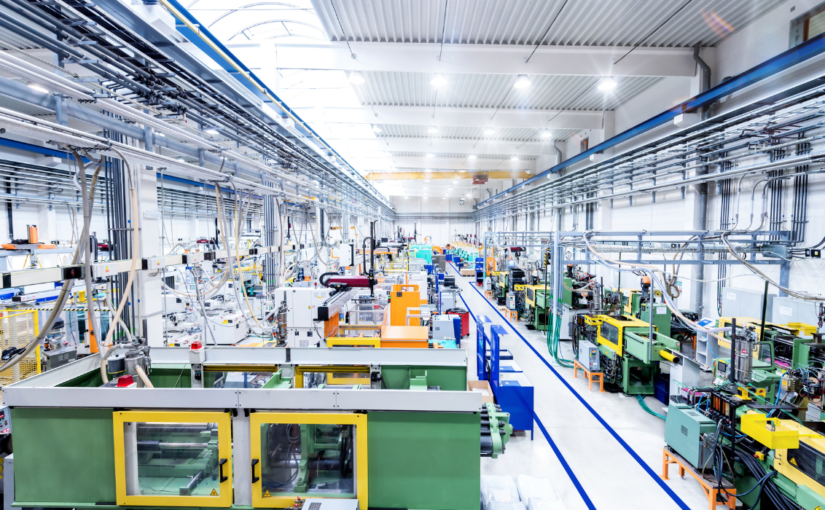back
The Impact of Technology on Industrial Properties
02-2023

Numerous aspects of our lives, including how we work, communicate, and even live, have been impacted by technology. The industrial sector, which has experienced many technological advancements in recent years, is one of the fields where technology has had a significant impact. Technology has drastically changed the industrial real estate market, bringing both advantages and disadvantages. This article investigates how technology has affected commercial real estate.
Automation
One of the most important technological developments in the industrial sector is automation. It entails utilizing robots and machines to complete labor-intensive, repetitive tasks that were previously completed by people. Because automation replaces manual labor, which is slow and prone to mistakes, industrial properties have seen increases in efficiency and productivity.
Robots can be used to assemble products, for instance, in a manufacturing facility, speeding up production and increasing accuracy. Automation technology can be used in warehouses to move products and goods around the space, reducing the need for human intervention. Overall, automation has transformed the industrial real estate market, resulting in operations that are more effective and efficient.
Digitalization
Another technology that has significantly impacted the market for industrial properties is digitalization. It entails utilizing digital tools like the internet, cloud computing, and the Internet of Things (IoT) to enhance industrial operations and procedures. Industrial properties can gather and analyze data, monitor equipment, and optimize processes with digitalization to increase productivity and decrease downtime.
For instance, manufacturing facilities can use IoT sensors to track the functionality of their machinery and identify any problems before they result in breakdowns. Digitalization can be used in warehouses to track inventory and streamline the picking and packing procedures. Digital technology adoption in the industrial real estate market has improved operations and raised profitability.
Sustainability
With businesses and governments looking for ways to lessen their carbon footprint and promote a cleaner environment, sustainability is a growing concern in the industrial sector. With numerous innovations aimed at lowering energy consumption and promoting renewable energy, technology has significantly contributed to the promotion of sustainability in the industrial properties sector.
For instance, industrial buildings can have solar panels installed to produce clean energy and lessen their reliance on fossil fuels. Industrial properties can also use energy-saving heating and lighting systems to cut back on their energy usage. These sustainability efforts benefit industrial properties financially as well as in terms of environmental protection.
Challenges
The adoption of technology in the industrial properties sector is not without difficulties despite the many advantages it offers. The high cost of implementing technology in commercial properties is one of the difficulties. For instance, automation and digitalization technologies necessitate sizable investments in hardware and software, which may be unaffordable for small and medium-sized businesses.
The requirement for specialized knowledge and experience to implement and manage technology in industrial properties presents another difficulty. Businesses must invest in employee training or hire new hires who have the necessary skills. The risk of technology replacing human workers, which would result in job losses and the need for retraining, is also present.
The industrial properties market has been significantly impacted by technology, which has resulted in more profitable operations, better sustainability, and more effective operations. The application of technology in industrial properties has changed the way businesses operate and compete in the market, from automation to digitalization and sustainability initiatives.
The high cost of implementation, the need for specialized skills, and the possibility of job losses are some of the difficulties associated with the adoption of technology. Businesses must weigh the advantages and drawbacks of technology before deciding how to integrate it into their operations.
Technology has generally had a positive effect on industrial properties, and it is anticipated that it will continue to change the industry in the future. Industrial properties that adopt technology and spend money on the resources needed to implement it will have a competitive advantage. Businesses must, however, be mindful of the difficulties associated with implementing new technology and adopt a balanced strategy. By doing this, they can minimize the risks and difficulties associated with technology while maximizing its advantages. Businesses in the industrial properties industry must keep up with the most recent technological developments as they develop in order to remain competitive and satisfy changing consumer demands.
F2H Capital Group is a debt advisory firm specializing in negotiating the best terms for your commercial real estate projects. The company offers a range of financial products and services, including fixed loans, bridge loans, and construction loans across all asset types. Please contact us for any of your financing needs.

